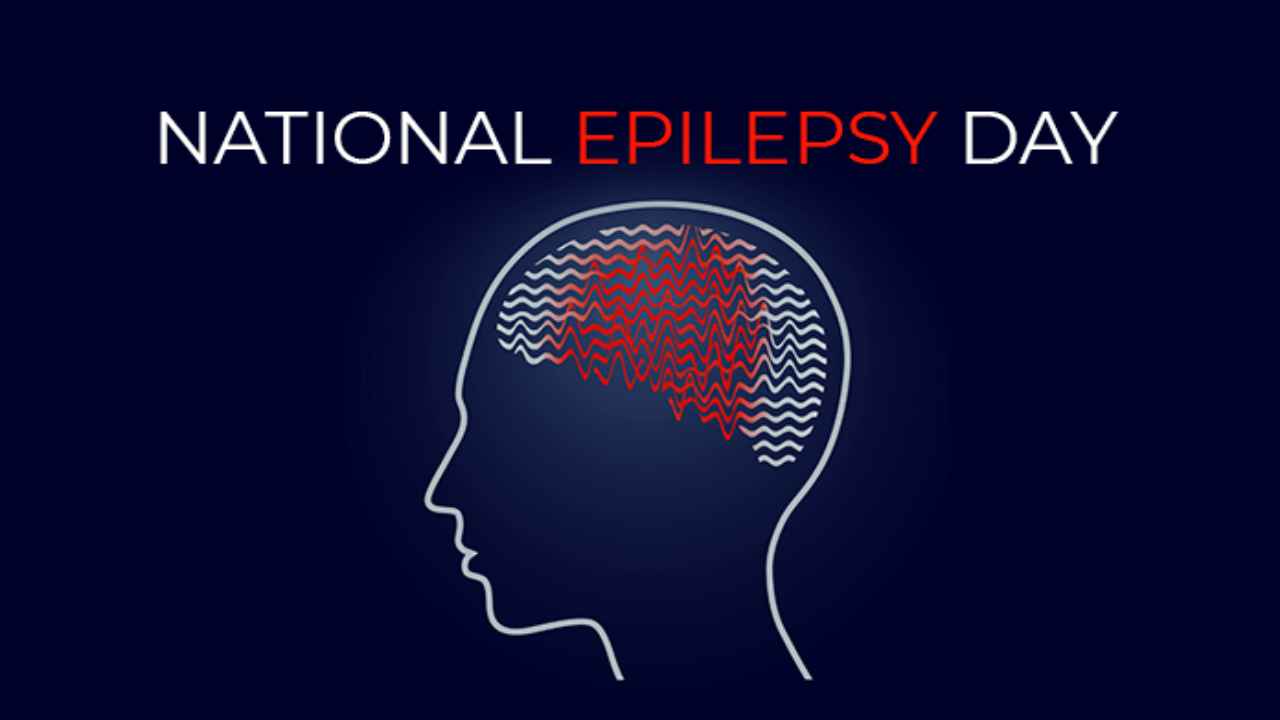National Epilepsy Day 2021: Epilepsy is a neurological disorder characterized by recurrent, unprovoked seizures. The condition leads to unusual behaviour, sensations, loss of awareness, and abnormal motor activity.
Statistically, one in a hundred people develop this disorder, and it is more common among young children and older people. November 17 is observed as National Epilepsy Day in India to raise awareness about the condition. Knowing the symptoms, causes, and ways to mitigate the condition is essential.
Statistically, one in a hundred people develop this disorder, and it is more common among young children and older people. The Epilepsy Foundation of India started a nationwide campaign to reduce the prevalence of this disease in the country.
Causes of Epilepsy:
- Brain damage from prenatal and perinatal injury
- Congenital abnormalities
- Brain Infections
- Stroke and Brain Tumors
- Head Injury/ Accidents
- Prolonged high fever during childhood
Symptoms of Epilepsy:
- Sudden twitching (uncontrollable jerking motions of the arms and legs)
- Loss of consciousness
- Tingling sensation (feeling of pricking pins or needles) in arms or legs
- Stiffness in muscles of arms or legs or face
Some tips for patients of Epilepsy:
- Take the epilepsy medications regularly as advised by a doctor, even if you are not having seizures.
- Do not discontinue the medications without your doctors’ advice.
- Consult your doctor while taking any other medications to avoid possible side effects or any complications.
- Do not drink alcohol as it provokes seizures.
Here is what you can do if you see an individual having a seizure:
- Don’t panic
- Loosen any tight neckwear
- Allow the person to rest or sleep
- Put something soft pillow under his or her head
- Remove sharp objects or other harmful objects around the person
- Do not put anything into the person’s mouth for the fear of swallowing tongue
- Roll the person onto one side so that any fluid in the mouth can safely come out.
What are the risk factors involved in Epilepsy?
People are most likely to develop epilepsy if they have suffered from head injuries, heart diseases that can restrict the flow of oxygen to the brain, brain disorders like dementia, stroke or occurrence of seizures when they were young. It can also be caused due to illicit drugs, brain tumours or bleeding in the brain.
What are the behavioural changes you may observe in Epilepsy?
People with epilepsy are likely to experience behavioural changes minutes or hours before a seizure. Additionally, the condition may provoke the individual to be apprehensive, aggressive, agitated, inattentive, and hyperactive. Some children with epilepsy can suffer from stress from the fact that they might have a seizure in front of their friends or loved ones. It can cause them to act out, withdraw from social situations, become socially dysfunctional, anxious, and depressed.
While epilepsy is the result of electrical reactions taking place inside the brain, having seizures at times can lead to certain dangerous circumstances such as falling, injuring your body or head, drowning while you swim. It is recommended that people suffering from active epilepsy should not drive, swim or engage in similar activity that can endanger their lives or the lives of others. Adequate and regular sleep is essential. Thus, consulting your doctor and timely medical intervention is advisable.


















